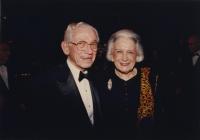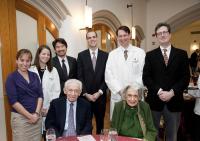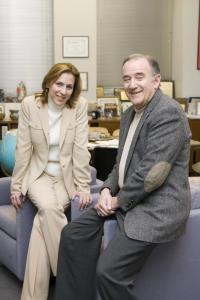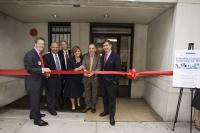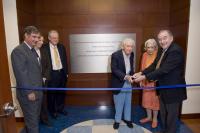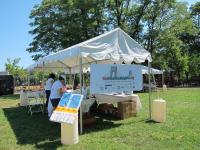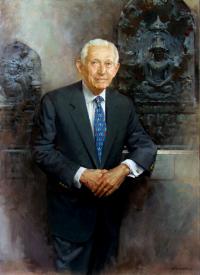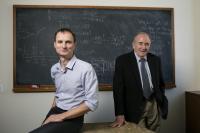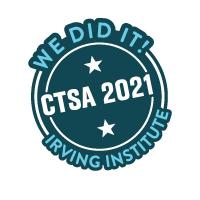History
1971-2026
Clinical research has been an important activity at Columbia University Irving Medical Center (CUIMC) since 1928, when Columbia University and Presbyterian Hospital joined forces to build a preeminent medical center in northern Manhattan. Early pioneering studies of diabetes and Addison's disease by Dr. Robert F. Loeb, of gout by Dr. Alexander Gutman, and of liver disease by Dr. Franklin Hanger helped to establish the national reputation of the center.
During the postwar decades of the 1950s and 1960s, the National Institutes of Health (NIH) devoted increasing resources to fund basic scientific and clinical research. These research endeavors required clinical infrastructures to support patient-orientated research. To respond to these needs, the NIH’s National Center for Research Resources created the General Clinical Research Centers (GCRC) program.
Milestone in the History of the Irving Institute for Clinical and Translational Research
-
1971
General Clinical Research Center (GCRC) is established at Columbia-Presbyterian Medical Center.

Columbia receives a GCRC grant from the NIH and establishes a research center. These grants provide support for the research space, beds, and equipment that are necessary to carry out experimental measurements and therapeutics in volunteer patients. Columbia's GCRC becomes one of the longest continuously operational centers across more than 70 GCRCs that existed in the United States.
-
1987
Herbert and Florence Irving pledge $11 million to establish the Irving Fund

The fund provides a permanent endowment to support clinical research at the medical Center, and establishes the Herbert and Florence Irving Center for Clinical Research at Columbia-Presbyterian Medical Center that consolidates previously scattered units. Mr. Irving is a co-founder of Sysco Corporation, a leading national food distribution group, and he and Mrs. Irving, having been treated at CPMC on a number of occasions, expressed their commitment "to give honor and recognition to our own personal physicians by establishing incentives for young physician-investigators to embark on a career of clinical research."
-
1987
Irving Scholars Program is established

A major portion of the Irving Fund is earmarked for the Herbert and Florence Irving Assistant Professorships, usually referred to as the Irving Scholars program. The program aims to encourage young physician-investigators to engage in clinical research. The three-year named professorships provide substantial salary support, allowing the Scholar more time for clinical investigation. The ranks of the Scholars appointed since the program began include physicians who have since become internationally recognized for their work.
-
1994
Dr. Henry N. Ginsberg appointed Director of the Irving Center for Clinical Research and GCRC grant

Dr. Ginsberg, who is the Tilden-Weger-Bieler Professor of Medicine and Associate Director of the Irving Center, replaces Dr. Robert Canfield, Irving Professor of Medicine, who had been the director since the center's opening. Upon Dr. Canfield’s retirement, Dr. Ginsberg assumes the role of Director and the title of Irving Professor.
-
2006
Irving Institute for Clinical and Translational Research is established with funding from the NIH and increased support from the Herbert and Florence Irving

The GCRCs are converted into larger, more diverse centers within a new initiative at the National Center for Research Resources (NCRR) at NIH, called the Clinical and Translational Science Awards (CTSA) Program. The goal of this program is to energize the discipline of clinical and translational research, ultimately enabling researchers to provide new treatments more efficiently and quickly to patients. Columbia becomes one of the first 12 sites across the United States to successfully apply and receive a CTSA grant. The 5-year, $54 million grant enables the Irving Institute to expand core resources including informatics and biostatistics, launch new educational programs to develop future research leaders, and invest on construction of new physical spaces. Mr. and Mrs. Irving pledge an additional $5 million and Columbia University matches this commitment to establish the Irving Institute for Clinical and Translational Research. Henry N. Ginsberg, MD, Herbert and Florence Irving Professor of Medicine is Principal Investigator and Director of the new institute. Melissa Begg, ScD, Professor of Biostatistics is named Co-Director.
-
2009
Columbia Community Partnership for Health opens

A new community resource center opens to promote health literacy and clinical trials education. The newly renovated 1800-square-foot center located at 390 Fort Washington Avenue features a bilingual health library, computers for community members to search for health information; and features exam rooms, and a conference room designed as a site for health promotion and disease prevention lectures, focus group meetings, and related events.
-
2010
Irving Institute Educational Center opens

A new educational center opens to facilitate the educational, training and mentorship aims of the Irving Institute. The 2200-square-foot, state-of-the-art space features a large classroom that can be subdivided and an administrative suite with conference room.
-
2011
Irving Institute receives renewed CTSA funding from NCRR
As one of 10 academic institutions nationwide to receive renewed CTSA program funding, Columbia University and the Irving Institute receives $38.9 million to help translate science into treatment. During this same year, NCRR is abolished as part of an NIH reorganization and was replaced by the National Center for Advancing Translational Sciences (NCATS). As the newest of 27 Institutes and Centers at NIH, NCATS is established to transform the translational science process so that new treatments and cures for disease can be delivered to patients faster.
-
2013
Columbia University names Herbert and Florence Irving honorary Doctors of Laws in recognition of their remarkable leadership in philanthropy and service.

-
2016
Irving Institute receives third and largest NIH CTSA Award for Columbia University
The Irving Institute receives a new 5-year, $58.4 million CTSA grant from NIH. Along with two previous grants, of $54.1 million in 2006 and $38.9 million in 2011, the Irving Institute received more than $151 million in CTSA Program funding.
-
2016
Get Healthy Heights website launches at the High Bridge Festival

A new health and wellness website for upper Manhattan launches as part of the Irving Institute’s efforts to partner with the non-profit and health care sectors to improve access to health resources in Washington Heights-Inwood. This user-friendly, interactive, and multilingual website provides access to northern Manhattan specific health information, events, articles and videos, and a directory of services.
-
2016
Columbia University and NewYork-Presbyterian name medical campus for Herbert and Florence Irving

Columbia University and NewYork-Presbyterian announce the naming of the Columbia University Herbert and Florence Irving Medical Center and NewYork-Presbyterian/Columbia University Irving Medical Center.
-
2016
Herbert Irving passes away at 98

Herbert Irving dies at his home in Manhattan on October 3.
-
2017
New Irving Institute Director appointed

After more than 22 years as Director of the Irving Center and then the Irving Institute, Henry N. Ginsberg, MD steps down. Dr. Ginsberg remains active in the Irving Institute as Director of the Pilot Award Program and the Predoctoral/Postdoctoral Training Program.
Muredach P. Reilly, MB, MS becomes Director and Principal Investigator of the Irving Institute for Clinical and Translational Research. Dr. Reilly joined the Irving Institute as Director Designate in 2016 from University of Pennsylvania.
-
2018
Florence Irving passes away at 98

Florence Irving dies at her home in Manhattan on July 25. Eight months prior to her death, Ms. Irving announced a $700 million bequest to Columbia University and NewYork-Presbyterian Hospital, further signifying Mr. and Mrs. Irving's lifelong commitment to supporting clinical research.
-
2020
New center (CHOSEN) launches to combat opioid and substance abuse disorders

In 2017, the Irving Institute for Clinical and Translational Research formed an Opioid Crisis Response Initiative. In 2020, this culminated in the Columbia Center for Healing of Opioid and Other Substance Use Disorders—Intervention Development and Implementation (CHOSEN), founded on a cross-disciplinary collaboration among Columbia’s School of Social Work, the Department of Psychiatry Division on Substance Use Disorders, and the Irving Institute, to focus on the negative health consequences caused by opioid and other substance use disorders.
-
2021
Irving Institute awarded $61.7 million to accelerate development of new treatments

The Irving Institute receives their fourth CTSA award totaling $61.7 million in funding from NIH. The grant received an overall impact perfect score by the review committee and will be funded through June 2026.
-
2021
New Co-Directors of TL1 Program Named

Dr. Marisa Spann & Dr. Jacquelyn Taylor join the Training and Nurturing Scholars for Research that is Multidisciplinary (TRANSFORM) resource, led by Daichi Shimbo, MD, Professor of Medicine and Associate Dean of Research Career Development. The TL1 program, previously led by Dr. Henry Ginsberg for many years, offers a two-year program of research and didactic training for predoctoral students and post-doctoral fellows.
-
2023
Celebrating 150 Irving Scholars

Thirty-six years after the inaugural award, we are proud to exceed 150 scholars supported by the program, including some of the very best physician scientists at Columbia University.
-
2023
Dr. Muredach Reilly Appointed Vice Dean for Clinical and Translational Research, VP&S

Muredach Reilly, MBBCh, MSCE, the current associate dean of clinical and translational research, has agreed to take on an expanded role as vice dean of clinical and translational research for the Vagelos College of Physicians and Surgeons (VP&S). In addition to this role he continues as the Herbert and Florence Irving Professor of Medicine, Director of the Irving Institute for Clinical and Translational Research, and Director of the Cardiometabolic Precision Medicine Program at Columbia University Irving Medical Center (CUIMC).
-
2024
Two New Co-Directors of the Irving Institute

Daichi Shimbo, MD, and Rachel Shelton, ScD, MPH, join Harold Pincus, MD, as co-directors of the Irving Institute. Dr. Shimbo directs the TRANSFORM resource, focused on workforce development and mentorship of clinical and translational researchers, while Dr. Shelton leads the Implementation Science Initiative engaging the community and strengthening healthcare research from bed-to-bedside.

